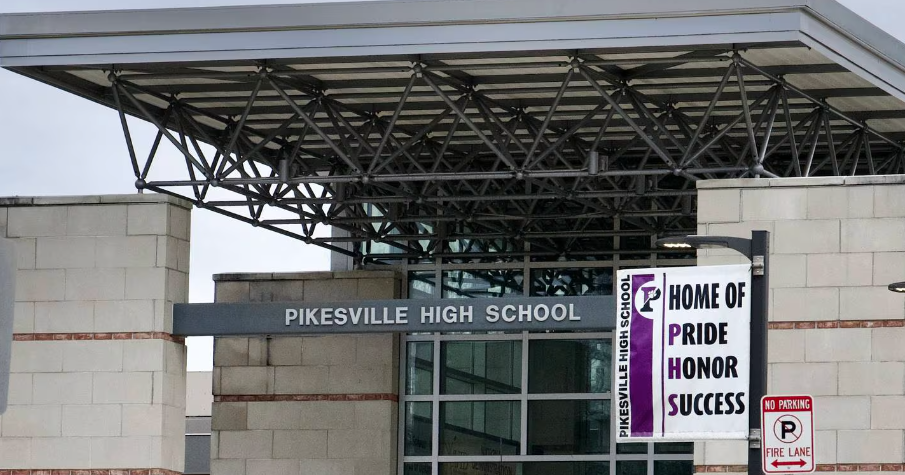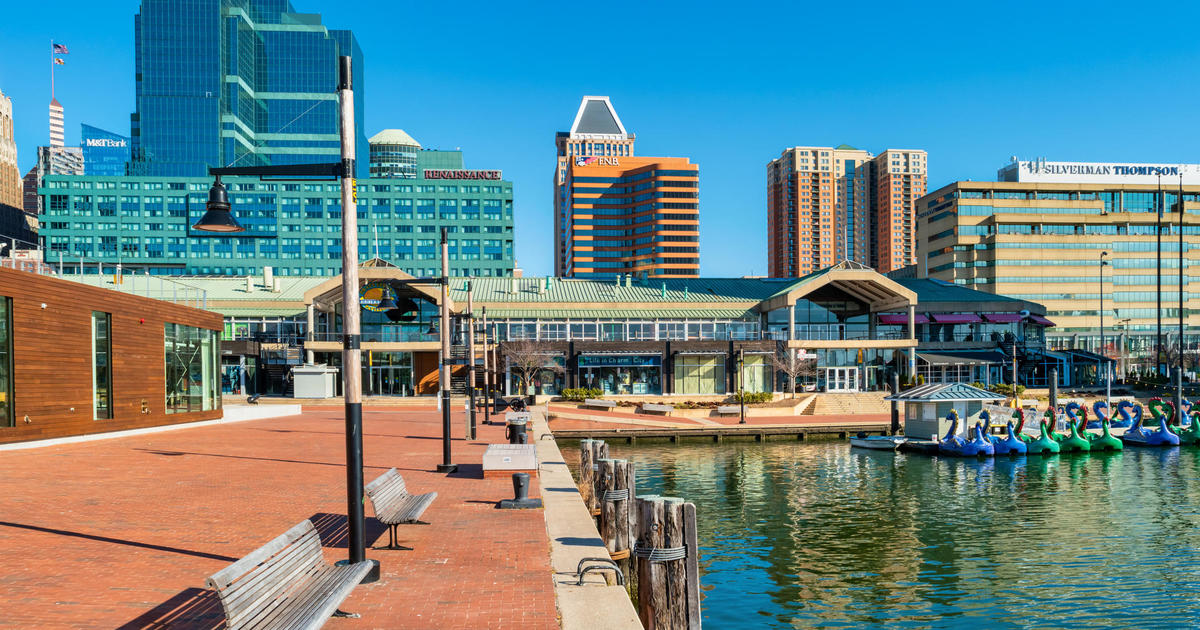St. John's Stays True To Liberal Arts Focus
ANNAPOLIS, Md. (AP) -- The economic downturn has not been kind to liberal arts schools. Middle-income families with depleted portfolios are fleeing to public colleges. To some, the very term "liberal arts" now symbolizes impractical indulgence. Tuition is at an all-time high. So, too, are tuition discounts. The vicious cycle is driving colleges into debt.
For Christopher Nelson, that fractured business model begets a single question: What would Socrates say?
Nelson is completing his 20th year as president of St. John's College in Annapolis, one of the nation's oldest and most distinctive schools, where there are no academic departments. At this college devoted to great works of Western civilization, Nelson has become a national spokesman for the liberal arts, a visible and passionate defender of learning for learning's sake.
In an era when many recession-scarred parents have come to view college as a path to a higher income bracket, Nelson dares to define it as the route to a life well-lived.
"As important as the world of work is to us, we don't live in order to get a job," he told an audience in San Francisco this year. "But we work in order to make it possible for us to live a good life."
Liberal arts colleges, once dominant in higher education, now command less than one-tenth of the higher-education market, which has gravitated toward schools offering more practical majors at lower price points. The sector is "always defending itself, always on the edge," said William Durden, president of Dickinson College in Pennsylvania and fellow defender of the faith.
The Great Recession of 2008 exposed vulnerabilities at St. John's. Applications fell from 460 in 2008 to 357 in 2010, yielding an uncharacteristically small freshman class. The average tuition discount off the school's $54,000 annual price tag rose from 29 percent to 40 percent, driven by its commitment to meet spiraling need.
Nelson is nursing the school back to health by breaking with tradition. The famously anti-commercial school now actively recruits thousands of potential students, rather than waiting for the intellectually curious to find their way to Annapolis. Nelson even hired marketing consultants, who persuaded the school to emphasize its high graduate-school placement rates and play down the fact that St. John's has no majors.
Yes, he thinks big thoughts. But what makes Nelson a particularly effective president, colleagues say, is his canny ability to engage with the world, a skill honed in his previous life as a labor lawyer. He is perfectly at ease parsing what he calls "the human project" with a roomful of politicians.
"I count him among the three or four most influential presidents in the country," said David Warren, president of the D.C.-based National Association of Independent Colleges and Universities.
In Nelson's office one recent morning, an industry leader on speakerphone beseeched him to lean on a prominent state lawmaker to fund capital projects at several private colleges. "I know that you have a very good relationship" with the lawmaker, she said.
Nelson made the call. The projects were funded.
When not behind his desk, Nelson crisscrosses the nation, delivering speeches in a rolling, bass-baritone voice about the transformational power of liberal learning.
"The well-educated adult," he told a Washington group this year, "has an integrity of character, a rootedness in essentials, and a self-understanding that makes it possible to live well and consistently in an unpredictable world."
Nelson was a founder of the Annapolis Group, a consortium of more than 100 liberal arts schools whose presidents first gathered at his residence in 1993. He was among the first presidents to boycott the U.S. News & World Report college rankings, dismissing them as foolish and withholding necessary data. Two decades later, St. John's stands almost alone in its defiance.
Nelson, 63, did not fit the mold of future college president when he enrolled at St. John's in 1966 with the lowest SAT scores in his class.
In the education vernacular of the time, young Christopher Nelson was "slow." He tested poorly. He learned to read later than his younger sister. Try as he might, he could not follow a lecture.
Books delivered him from ignorance: first the Hardy Boys, then Edith Hamilton's "Mythology," then "The Iliad." Soon,
Christopher was reciting Homer in the family home, re-imagining the living-room rug as the river Scamander.
Great books were in his blood. His father, Charles Nelson, had hitchhiked to Annapolis from Chicago in 1941 to attend St. John's, an intellectual pilgrim. He went for the unusual curriculum, adopted in 1937 to give the college a niche and stave off bankruptcy. The elder Nelson spent the formative years of his career disseminating those works to the masses.
Christopher Nelson grew up in the New York suburbs, the eldest of four. He rose to student-body president at White Plains High School. As a St. John's student, he earned the nickname Hector, after the Trojan hero, for derring-do on the athletic field.
A comparatively tiny college of 500 students, with a sister campus in Santa Fe, N.M., St. John's has one of the strongest brands in academe. The Annapolis campus traces its origins to 1696 and would probably rank among the top 50 liberal arts schools, if Nelson would cooperate. This year, U.S. News lists the school as No. 166 among national liberal arts colleges, based on incomplete data. Williams, Amherst and Swarthmore top the list.
St. John's operates differently than other colleges. Its curriculum requires all students to read the same essential texts, in roughly the order they were written, starting with Homer's "Iliad" and "Odyssey." There are no lectures, only seminars guided by faculty "tutors."
The Program, as it is called, attracts a small group of passionate students. Nearly everyone gets in, making St. John's less selective than its peers. But the students generally bring high test scores and a strenuous work ethic. St. John's ranks among the top 2 percent of colleges for producing future PhDs.
Johnnies, as they are known, drop words such as "truth" and "virtue" in casual conversation. At a recent morning coffee in Nelson's office, a student told how he was wrestling with what it means "to be just, rather than just to seem just."
A faculty member jumped in: "Well, there's a very good book about that, called 'The Republic.'?"
The steady diet of Chaucer, Copernicus, Dante and Heidegger is no cakewalk; there is a high rate of burnout. Fewer than half of Johnnies graduated when Nelson arrived. The rate now reaches 70 percent.
St. John's has always put academics first. Practical matters, such as buildings, fundraising and money in general, were something of an afterthought before Nelson arrived.
He was an unusual choice for president. Though active on the St. John's governing board, Nelson had never worked in academia, an odd deficit for the leader of a most cerebral college.
But colleagues say he combines administrative skill and intellectual heft. Nelson ran meetings in much the same way the tutors ran seminars: listening, thinking, deliberating.
"He'll sit at a table forever until we get it figured out," said Barbara Goyette, vice president of fundraising and alumni relations.
St. John's was chewing through its tiny endowment when Nelson arrived. Nelson built it up from $27 million to $135 million. He renovated neglected facilities.
Longtime faculty have few quibbles with Nelson's leadership.
Some wish he traveled a bit less. Others say he deliberates a bit much. No one seems ready for him to retire.
"We may, if we're very, very lucky, get someone in the future who's as good as he is," said Harvey Flaumenhaft, a tutor since 1968. "I don't think we'll ever have anyone who's better."
Applications to St. John's rebounded to 394 this year. Nelson expects a larger freshman class and hopes financial aid expenditures will level off.
"Good news from admissions," Nelson said, opening a meeting of the school's financial committee on a recent morning. "I mean, those numbers are holding up really nicely."
The Washington Post
(Copyright 2011 by The Associated Press. All Rights Reserved.)



